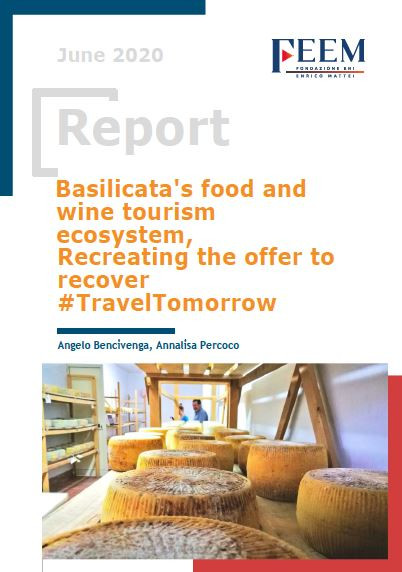Basilicata’s food and wine tourism ecosystem, Recreating the offer to recover #TravelTomorrow

22.06.2020
Angelo Bencivenga (Fondazione Eni Enrico Mattei); Annalisa Percoco (Fondazione Eni Enrico Mattei)
The growing competition between tourist destinations drives territories to continuous innovation with the aim of positioning themselves in an increasingly crowded market, and the search for positioning involves creation of new tourism products based on the authenticity, sustainability and originality of the destination especially after shock situations such as Covid 19.
The travel ban seems to be the right moment to speed up reorganisation of a territorial offer able to satisfy the demand for sustainability to which the need for security has been added. A tourism product able to meet these needs is food and wine tourism.
The challenge for destinations is therefore to make use of the obvious advantages of food and wine tourism through technological innovation but above all through a process innovation based on knowledge and organisation of their territory in order to build a tourism offer designed according to the market logic.
Starting from the concept of a tourism product and the importance that food and wine tourism could have for a rural region like Basilicata situated in the south of Italy, we have envisaged the food and wine tourism ecosystem as a model able to determine local development through the involvement of all the players essential to the holistic development of the territory.
The growing competition between tourist destinations drives territories to continuous innovation with the aim of positioning themselves in an increasingly crowded market, and the search for positioning involves creation of new tourism products based on the authenticity, sustainability and originality of the destination especially after shock situations such as Covid 19.
The travel ban seems to be the right moment to speed up reorganisation of a territorial offer able to satisfy the demand for sustainability to which the need for security has been added. A tourism product able to meet these needs is food and wine tourism.
The challenge for destinations is therefore to make use of the obvious advantages of food and wine tourism through technological innovation but above all through a process innovation based on knowledge and organisation of their territory in order to build a tourism offer designed according to the market logic.
Starting from the concept of a tourism product and the importance that food and wine tourism could have for a rural region like Basilicata situated in the south of Italy, we have envisaged the food and wine tourism ecosystem as a model able to determine local development through the involvement of all the players essential to the holistic development of the territory.
